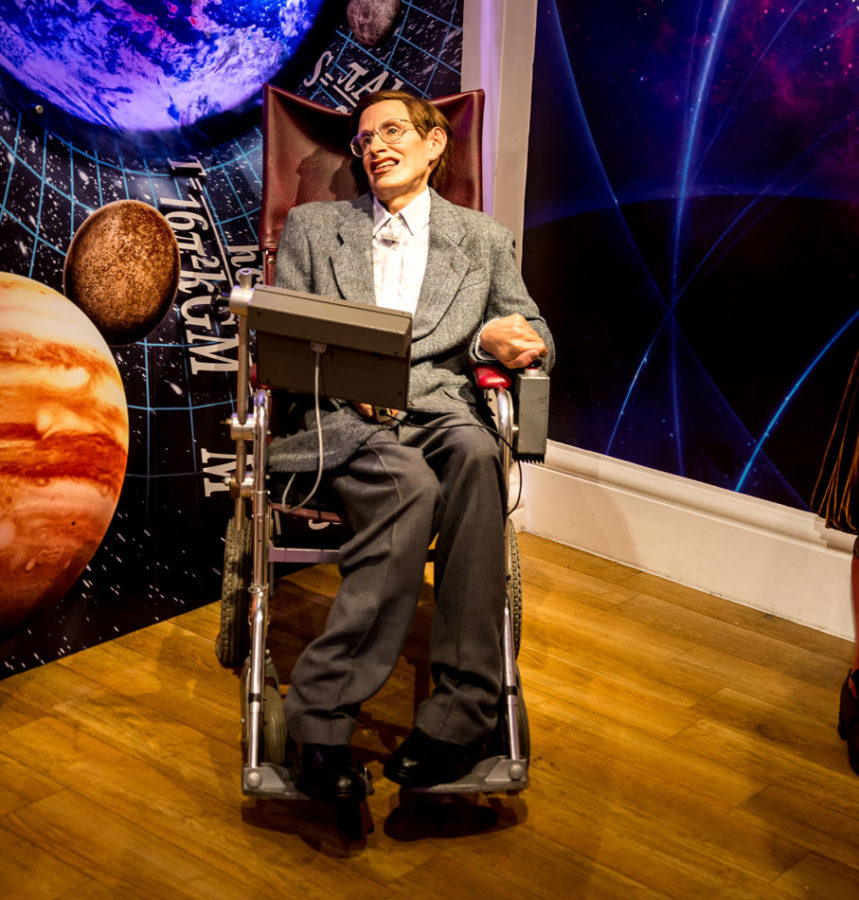Stephen Hawking, Greatest Mind Since Einstein, Dies
April 10, 2018
On March 14, world renowned physicist Stephen Hawking passed away from a slow progressing form of amyotrophic lateral sclerosis, or ALS, a motor neuron disease. ALS, also known as Lou Gehrig’s Disease, slowly paralyzed Hawking over several decades. By the time he passed away, he was unable to move or talk and had to communicate through a speech-generating device by using his hand and eventually using a single cheek muscle.
Even with ALS, Hawking followed through with his research and became known for contributions to the fields of cosmology (the science of the origin and development of the universe) and quantum gravity (a field of theoretical physics that seeks to describe gravity according to the principles of quantum mechanics), especially in the context of black holes. Hawking proposed a theory that black holes should emit radiation, which today is known as “Hawking radiation.” Hawking also published several books in which he discusses his own theories and cosmology in general, including his bestseller A Brief History of Time. Hawking was known as one of the greatest minds in physics since Albert Einstein.
Hawking was born Jan. 8, 1942, in Oxford, England. His father worked in the division of parasitology at the National Institute for Medical Research. Hawking attended St. Albans School, where he was mostly an average student, but in 1959 he won a scholarship to the University of Oxford. He studied physics under Robert Berman until he graduated in 1962 with a First Class Bachelor of Arts degree. After graduating from Oxford, he spent some time studying sunspots at Oxford’s observatory. However, he eventually left Oxford for Trinity Hall, Cambridge, studying under Fred Hoyle, a distinguished English astronomer.
Mr. Brown, a science teacher here at Santa Fe High, stated that Hawking’s death is an end to a scientific chapter. “On top of him being one of the most brilliant minds in the scientific community, it made it all the more impressive that he became this distinguished even with ALS.” According to Mr. Brown, Hawking’s biggest contributions can be attributed to his “out of the box thinking” and how he was “not afraid to challenge authority or question humans’ place in the universe.”


